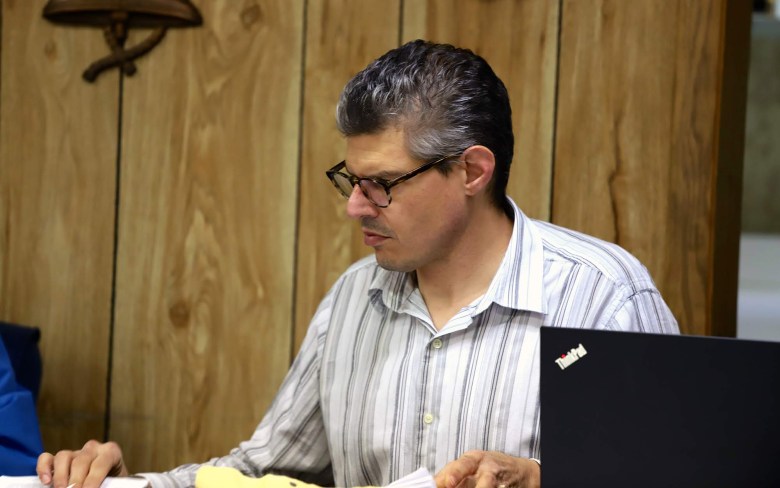
Unbalanced
How property tax assessments create winners and losers
From the Rivers Casino Pittsburgh to U.S. Steel’s Clairton Coke Works, big commercial property owners are looking to take advantage of a unique tax appeal season to save money — at the expense of schools and municipalities.
An archaic property assessment system, now reshaped by lawsuits and resulting court rulings, has created “assessment chaos,” which is making it hard for governments to budget, said Ira Weiss, solicitor for the Pittsburgh Public Schools. “The bottom line is: It’s a mess.”
Allegheny County’s Board of Property Assessment, Appeals and Review [BPAAR] has received 11,660 appeals of 2023 tax assessments. That’s notably higher than the average of around 8,000 appeals per year filed from 2015 through 2021.
This year’s appeals are 1,000 lower than the number filed last year, but there’s a key difference. Last year, nearly 90% of appeals were filed by school districts hungry for more revenue as property values rose. Appeals of 2023 tax bills, by contrast, came in almost as heavily from property owners looking to lower taxes (44% of appeals) as they did from school districts (54%). Municipalities — the only other entities that can appeal — consistently account for around 2% of filings.
About Unbalanced: This year, PublicSource is exploring the effects of property taxes on people and communities a decade after Allegheny County’s last reassessment.
Driving the change in the mix is a judge’s decision in a taxpayer lawsuit that tilted the tax math in favor of property owners — but only if they appeal. And many sophisticated property owners are doing just that.
U.S. Steel, for instance, is appealing the tax bills on 95 properties, virtually everything it owns in Allegheny County. The steelmaker has filed the most appeals of any property owner in the county, covering property assessed at around $58.5 million.
Clairton is home to 32 of the U.S. Steel parcels under appeal. The Mon Valley city relies on the steelmaker for almost one-third of its total tax base, according to Mayor Rich Lattanzi.
To have all of that under appeal is “huge for us,” Lattanzi said. The revenue loss could “be catastrophic for the City of Clairton,” he said, adding that U.S. Steel has helped his government and he believes the company doesn’t want to hurt the home of its coke works.
U.S. Steel is appealing its assessments to “bring its property values back into proper alignment,” according to spokesperson Amanda Malkowski, and to correct the “improper calculation” that has affected the taxes of property owners for years. The steelmaker doesn’t intend to apply any savings it achieves until 2024, so it won’t upend the current operating budgets of schools and municipalities.
But after that? “We would hope to be assessed fairly moving forward,” Malkowski wrote.
School districts contend with ‘nitroglycerin’
The genesis of the property owner appeals is a lawsuit alleging that Allegheny County engineered years of unfair property taxation for thousands of properties. It led Common Pleas Judge Alan Hertzberg to change the common level ratio [CLR], a factor used in calculating the assessments of properties that are subjects of appeals.
The effect of the new ratio on assessed values will depend on an involved property’s market value and whether it has any tax exemptions, but could in many cases bring a reduction of around 20%. That reduction would carry into future years until another appeal or a reassessment occur. The reduction is only available to owners who file appeals and prove that the market value of their property warrants the reduction. The deadline for filing appeals was March 31.
Whereas appeals under the prior ratio often brought increased revenue to districts, now they could instead “knock 30% off of the value” used to determine the tax bill, according to Weiss. For school districts, he said, an appeal is now “like picking up a container of nitroglycerin and not knowing if it is going to blow up.”
The fact that 44% of appeals were filed by property owners represents “a dramatic shift in the breakdown from last year,” said Michael Suley, former manager of the county’s Office of Property Assessments and a consultant to the plaintiffs in the lawsuit. “The pendulum is swinging the other way.”
Why didn’t even more owners appeal in a county with some 580,000 properties? “What that tells me,” Suley said, “is that the property owners still don’t know how to do the math” to determine whether they can save money via appeal.
Most of the appeals involve residential properties, but the most consequential may be those related to commercial parcels. Countywide, owners of 877 commercial properties are appealing their 2023 tax bills.

One of those properties, the Rivers Casino, carries the highest assessment of any taxable property in Allegheny County, at $240,905,100. According to Pittsburgh’s property tax calculator, that likely means around $5.5 million annually in revenue for the city, county and Pittsburgh Public Schools.
A Rivers Casino spokesperson declined to comment.
A significant recalculation of the casino’s tax bill alone could shave $1 million or more from public coffers. And that’s one property.
“The impact is going to be significant,” said Weiss. It could cut into the budget of not only Pittsburgh Public Schools, but of other districts with large commercial properties, including Montour and Upper St. Clair, which his firm also represents. Schools could theoretically make up lost revenue by raising tax rates, known as millage, but those increases are limited by state law. “You can’t tax your way out of this problem.”
In Clairton, ‘shoestring’ budgets and big steel
Mon Valley communities like Clairton are already feeling the economic pressures of a declining tax base and the rising costs of municipal services. Clairton City School District receives about 3% of its total budget from U.S. Steel, and lower corporate contributions could mean potential budget shortfalls, said Larry Nicolette, the district’s business manager. That’s made it difficult to build up funds or include any slack in their budgets.
The district “started at less than zero and we’re building up,” he said. “We’re trying to provide a world-class education, but we’re on a shoestring budget as well.”
The City of Clairton was under Act 47 — the state program for municipalities experiencing “severe financial difficulties” — for over 25 years starting in the late 1980s. The city exited the program in 2015 after combining jobs, using the lowest responsible bidders for contract work and implementing other cost-cutting measures, said Lattanzi, the mayor. But things are still tight.
Going back into Act 47 is “always a concern,” he said. “It’s always in the back of your mind.”

“We’re probably at the end of the rope as far as our savings,” he said.
“The cost of everything is up,” Lattanzi said. “If we lose any additional revenue through taxes, we may have to do a tax increase for the City of Clairton.”
Lattanzi noted that U.S. Steel works with the city to build playgrounds and hang banners touting veterans, plus donates funding that has helped his administration to buy and renovate a community center, purchase a dump truck, build a baseball field concession stand and prepare land for redevelopment. Nicolette added that the company’s craftspeople have helped paint and lay carpet in the school.
“With U.S. Steel,” said Lattanzi, “it’s very important to have a relationship.”
In Munhall, paving and parks at stake
Further up the Monongahela River, U.S. Steel and affiliates filed 12 appeals on properties in Munhall. The borough’s current financial outlook is stable, according to borough manager Seth Abrams, but “I wouldn’t say we’re flourishing.”
U.S. Steel makes up about 3% of Munhall’s total property tax revenue, according to Abrams, much of which comes from one property in The Waterfront.
Abrams said the borough is looking for places to potentially cut costs in the future.
“Overall, we are concerned about the appeals in combination with the CLR that the courts have handed down,” he said. “We did budget for a potential loss of some revenue and did proactively have a small millage increase.”

Abrams emphasized that Munhall has no concrete plans to trim services, but officials have begun to take note of services and investments that could be on the chopping block, like paving projects or a park rehabilitation.
He regretted, too, the practice of many school districts and some municipalities of appealing the assessments of new homebuyers, using the sale price as evidence to wring assessment increases from BPAAR. “We need the funds to maintain the services,” he said, “but to dump it on the people who are moving into town is not the welcome we want to give them.”
Potential fix not politically popular
Generally, property taxes are supposed to be based largely on the value of the property.
Allegheny County’s system — in which most tax bills are static while schools and municipalities appeal the assessments of recently sold properties — is rooted in the county’s decade-ago decision not to regularly reassess properties.
Other than Pennsylvania, “There’s no other state out there that allows counties to go 10 years without a reassessment,” said Dominick Gambino, owner of Diversified Municipal Services, a company that consults for schools, municipalities and counties regarding assessments. He managed Allegheny County’s Office of Property Assessments from 2001 through 2003, leading a reassessment of all properties.
The common level ratio is intended to achieve rough equality between years-old assessments — like the decade-old values that still determine the tax bills of most Allegheny County properties — and newer assessments based on recent sales.
Gambino, though, said the ratio “does not achieve equity, and it’s kind of like a Rube Goldberg machine. They took something very simple and made it so complicated that people can’t even understand it.”
The only fair system, he said, involves routine reassessment of every property.
Weiss said the county’s decision not to reassess has left the property tax system “in a shambles. … It is my hope that whoever is elected immediately addresses this problem.”
Reassessments, though, have been politically fraught, as they tend to boost at least as many tax bills as they reduce.
At an April 19 town hall debate sponsored by PublicSource and NEXTpittsburgh, all of the candidates for county executive were asked whether they would reassess all properties.
One, state Rep. Sara Innamorato, pledged to “create a system that people have buy-in to, so it needs to be transparent. It needs to be regular. It needs to be without bias.”
No other candidate, though, expressed any intention to conduct a blanket reassessment.
“Let’s acknowledge that we have a horribly unfair system of taxation here in Allegheny County,” said city Controller Michael Lamb. “… I can’t support a reassessment until we can protect homeowners from these massive increases that are likely to happen to them.”
Julia Zenkevich is a general assignment reporter for 90.5 WESA.
Rich Lord is the managing editor of PublicSource and can be reached at rich@publicsource.org.
This story was fact-checked by Dakota Castro-Jarrett.
This package was produced in a partnership between WESA and PublicSource.






